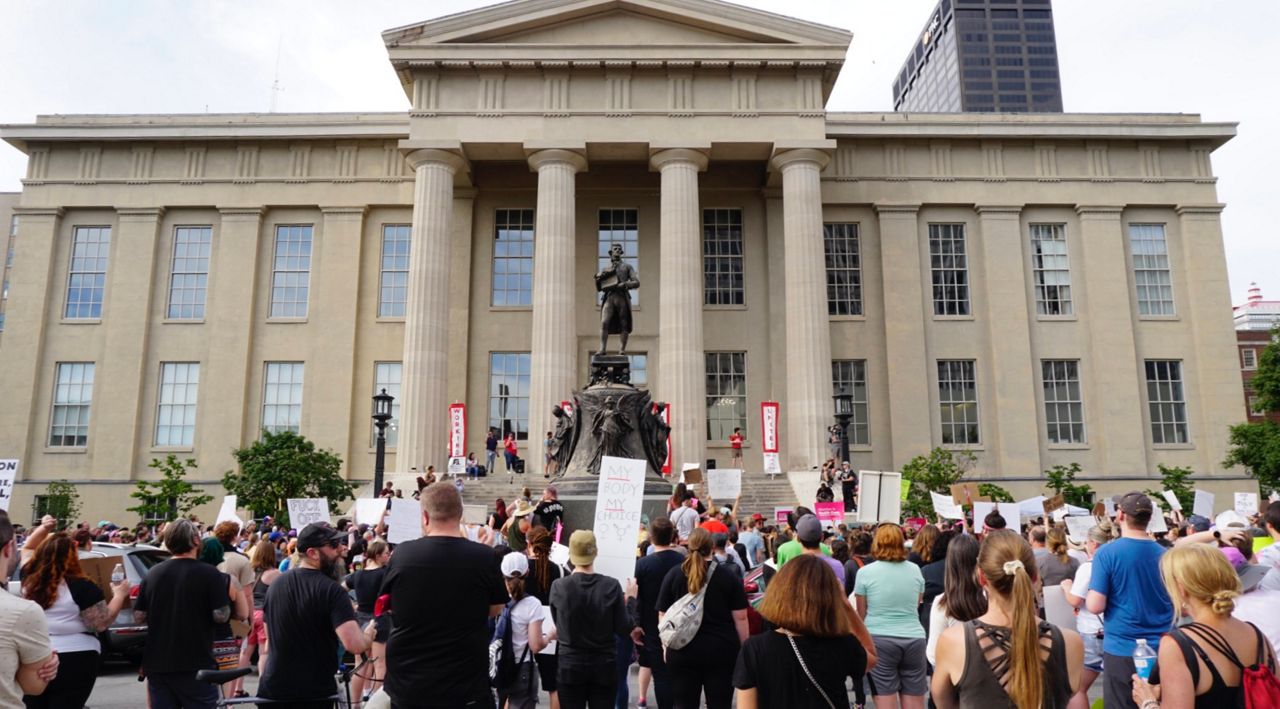FRANKFORT, Ky. — Kentucky's Supreme Court ruled Thursday that the state's near-total abortion ban will remain in place while it reviews arguments by abortion clinics challenging two state laws.
It was the latest legal setback for the two remaining abortion clinics in Kentucky — both in Louisville, the state's largest city. The state's highest court kept in place a recent lower court ruling that reimposed the ban on nearly all abortions in Kentucky.
What You Need To Know
- Kentucky's Supreme Court ruled that the state's near-total abortion ban will remain in place until at least Nov. 15
- The state's highest court kept in place a recent lower court ruling that reimposed the ban on nearly all abortions in Kentucky after oppontents appealed
- The high court set a hearing for Nov. 15. That will be after the upcoming general election, where voters will decide on an amendment to the state constitution on whether the document secures or protects the right to abortion
- Last month, a circuit judge in Louisville temporarily blocked the two laws while the courts reviewed whether the measures violate Kentucky’s constitution
Abortion-rights groups vowed to continue their legal fight, saying the government should never have the authority to “force a person to remain pregnant against their will.” The groups called abortion a “critical individual freedom.”
“Make no mistake: abortion bans result in tragic health outcomes and are a form of control over our bodies,” a statement from Planned Parenthood Federation of America, the American Civil Liberties Union and the ACLU of Kentucky said on behalf of the two clinics. “Despite this setback, the fight continues. We will proceed with our case to restore and protect reproductive freedom in Kentucky.”
Abortion rights have been reinstated and then revoked again by judges in Kentucky since the U.S. Supreme Court overturned Roe v. Wade in June.
Kentucky's justices in Thursday's ruling denied a request by the abortion clinics to reimpose an injunction that temporarily prevented the state's near-total abortion ban from taking effect.
In doing so, the Supreme Court ruled that the “circumstances” presented by the clinics and their attorneys in their motion “do not rise to the level of extraordinary cause.”
The Supreme Court agreed to take the case and set a schedule for the submission of briefs and for arguments before the justices.
The high court set a hearing for Nov. 15. That will be after the upcoming general election, where voters will decide on a referendum amending the state constitution centered on the right to abortion.
The yes/no amendment on Nov. 8 ballots will read: “To protect human life, nothing in this Constitution shall be construed to secure or protect a right to abortion or require the funding of abortion.” Selecting "yes" supports the amendment, and "no" opposes it.
Kansas voters earlier this month resoundingly shot down a similar amendment with nearly 60% of voters choosing to protect abortion rights, but anti-abortion activists have rallied for a recount.
Kentucky's Republican-dominated legislature enacted a “trigger law” banning nearly all abortions if the U.S. Supreme Court overturned Roe v. Wade. The only exception under the measure is when the health of the mother is threatened. Lawmakers also passed a separate 6-week ban that the clinics also challenged.
Last month, a circuit judge in Louisville temporarily blocked the two laws while the courts reviewed whether the measures violate Kentucky’s constitution. A state appeals court judge earlier this month said the ban should take effect, even if the laws are in dispute, because in Kentucky, “a statute carries with it the presumption of constitutionality.”



